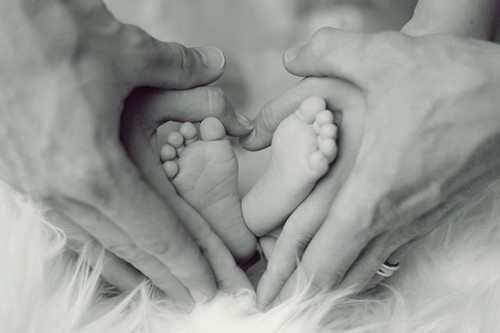Body After Birth: 7 Post-Pregnancy Changes to Spot
When you find out you’re expecting, the entire pregnancy process will change your body. Of course, you’re going to develop some kind of bump as your little one inside grows. However, once they’re safely in the world and your labour turns into a distant memory, there are many post-pregnancy body changes that may startle you.

They say that becoming a mother changes you, and they’re not telling lies. After birth, your body can display all kinds of physical changes. While some will be nothing to worry about, others may be more of a concern. With that in mind, here are some changes to look out for.
Shoe Size
Before pregnancy, you may have been a size 3 shoe. Throughout pregnancy and beyond, you may go up a size. Naturally, you’ll be wondering how this happens? The answer is simple – hormones and weight gain. The extra weight you carry may flatten the arch of your foot. If this occurs, you may need an extra half-inch larger shoe to be comfortable and content. Hormones play a key role too, with relaxing being the most prominent. This hormone helps relax ligaments and bones in the pelvis, helping your body to be elastic during labour. However, it can also affect the ligaments in your feet too, causing them to be more spread out.
Extra Pounds
When you’re expecting, you’ll inevitably put on some weight. After all, you have got a growing life inside of you! However, while those extra pounds do not have to be permanent once your little one arrives, they are for many women. It’s suggested that after giving birth, a woman will be between 1 to 2kg heavier than she was before pregnancy. Although this isn’t a huge gain, this number can increase depending on how many more babies you have.
Pain During Sex
Pain during sex can occur after any type of birth. However, one of the most common reasons for it is vaginal dryness. This is often caused by hormones. Pain during sex is also a common symptom of postpartum endometritis. There is a guide you can check out that explains endometritis in more detail and what to look out for. Understandably, it can be disheartening to experience pain and discomfort during intercourse, so if you have any concerns, don’t hesitate in speaking to your doctor.
Problems Urinating
While not every woman will face the unpleasant problems attached to squeezing a tiny human out of their body, giving birth can put new mums at a heightened risk of incontinence, or loss of bladder control. There is a reason for this. Vaginal delivery may weaken the muscles required for bladder control. This could result in problems urinating or not being able to hold your urine. Never feel embarrassed about this. Lots of women in a similar boat go through the same experience. There are pelvic floor exercises you can try out which can offer relief.
Growing and Shrinking Breasts
Throughout and beyond pregnancy, your breasts will go through some big (and small) changes. Breasts tend to get bigger at first. This is because the dormant fat tissue found in them gets replaced by functional tissue. Larger breasts do not last forever. Once a woman finishes breastfeeding, that functional tissue weakens as it’s not being used anymore. If you have another baby, the process will be repeated. Should you gain a lot of weight during pregnancy, you will replace those fat cells in your breasts.
Stretch Marks
If there is one post-pregnancy change that happens to many women, it’s stretch marks. During pregnancy, you may spot red or pink stretch marks on your skin. If you aren’t happy with their appearance after your baby arrives, the good news is they tend to get much lighter over time. Stretch marks normally fade after 1 or 2 years. However, if you get pregnant again or lose or gain a load of weight, expect stretch marks to appear more pronounced. Many women use bio-oil which helps improve the appearance of stretch marks.
Diabetes
Gestational diabetes that is, elevated blood sugar throughout pregnancy can develop in many pregnancies. The mother’s diabetes risk does not end once the pregnancy does. In fact, after labour, many women end up developing type 2 diabetes later on in life. In most cases, these women know they are at risk already. This could be due to family members having diabetes. If you develop gestational diabetes, you must maintain a healthy weight, monitor blood sugar, and get screened for diabetes in the years following your pregnancy.
Your body does incredible things during pregnancy and beyond. Once you enter motherhood and have your new born by your side, that doesn’t mean you should stop paying attention to your own health and wellbeing. If you notice any of the body changes above in yourself, don’t hesitate to speak to your GP for advice or reassurance.